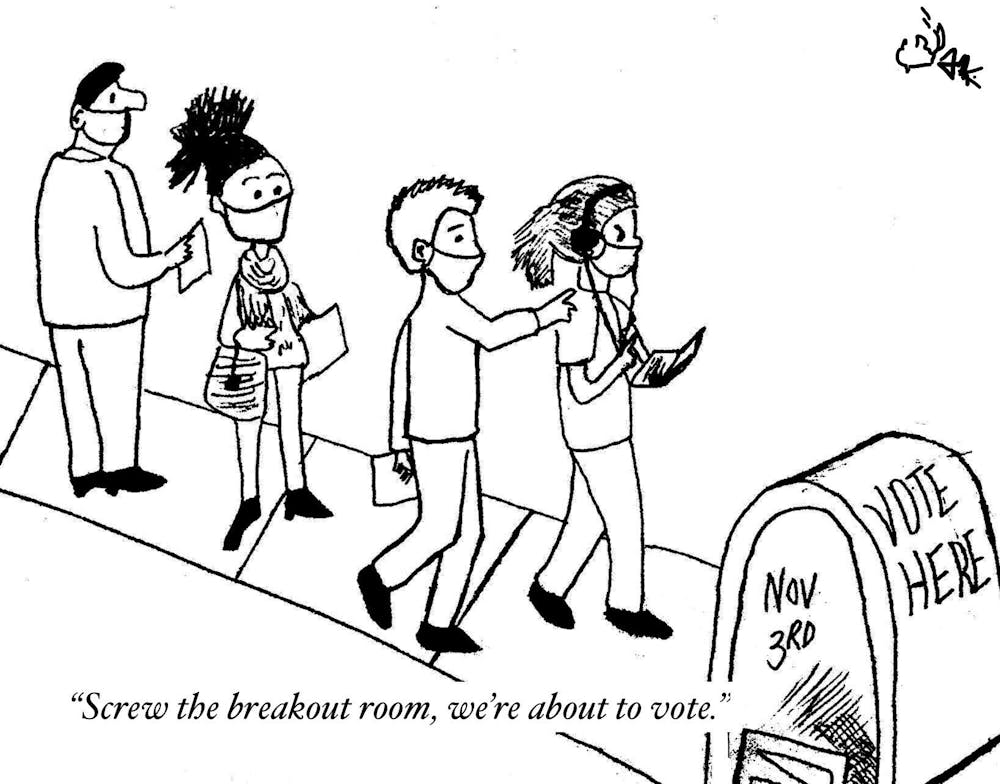We hate to beat a dead horse, but 2020 has been full of tragedy and crises. Perhaps the single thing that hasn’t gone horribly wrong this year is the outcome of the 2020 U.S. presidential election.
Many of us voted for the first time last week, participating in one of the most influential elections of our lives. Many of us are relieved that President-Elect Joe Biden will move into the White House in January. Yet the sitting President Donald Trump, backed by GOP leaders, continues to level baseless accusations of voter fraud and illegitimate results.
By refusing to concede, Trump has created additional challenges for Biden’s transition team. Four years ago, then-President Barack Obama met with Trump just two days after the election was called. Trump has given no indication that he will do the same anytime soon, dismissing decades of concession speeches that call for unity.
Trump was voted out of office, but Republican leaders will carry on his legacy. Senators Mitch McConnell and Lindsay Graham won re-election, despite making the objectively hypocritical decision to rush through Amy Coney Barrett’s confirmation to the Supreme Court. They now support Trump in his efforts to undermine the election, further dividing our polarized country.
As tempting as it can be to blame Trump for division and the rise of racism and xenophobia in this country, he isn’t the problem or even its cause — he simply made it more visible. When he (finally) leaves office, the United States will not magically heal. Divisive and racist beliefs existed long before Trump gave them a megaphone in 2016, and they will continue in 2021 and beyond.
Despite issues within the nation at large, we want to acknowledge everything Hopkins did to encourage participation in our democracy. Employees were allowed up to two hours of paid time off to vote. The University’s nonpartisan Hopkins Votes initiative focused on the importance of casting a ballot rather than taking stances on any candidate or policy. Through frequent emails and registration events, Hopkins Votes ensured that students knew how to cast a ballot.
This year, Hopkins also enacted additional measures to facilitate voting by offering transportation to local polling locations and ensuring that no student would be required to attend live courses on Election Day. We appreciate that Hopkins has made so much progress with student voting in recent years. The culture around voting on campus has certainly shifted, and students are more politically engaged than ever.
That said, there is always room for improvement when it comes to democratic engagement. Beginning in 2021, Election Day should be a University holiday. We appreciate how understanding our professors were, but they shouldn’t be the ones deciding whether to have class. To ensure students, faculty and staff can vote and/or serve as an election volunteer with ease, Hopkins should give all of us the day off.
We want to extend a sincere thanks to all who made a difference in our democracy this year: from students to the Black women activists who helped mobilize voters across Georgia. Stacey Abrams, Helen Butler, Nse Ufot, Deborah Scott, Tamieka Atkins and countless others helped register thousands of voters, primarily Black women and Black youth, turning the state blue.
It’s our turn now. We should follow the lead of these incredible Americans and continue the necessary work of getting out the vote. Remember that control of the Senate will also be determined by Georgia in two upcoming runoff elections. Volunteer to phone bank for Democratic candidates Raphael Warnock and Jon Ossoff, encourage friends and family in Georgia to vote and consider donating to voter registration efforts. Their success will ensure that Biden has the Senate majority he needs to pursue an ambitious agenda.
2020 has been awful, but we cannot go back to how things were before. Casting a ballot is not the end of our work; we must hold our leaders accountable once they assume office. We must challenge the status quo. Without radical change, we’ll never become a more perfect union.





